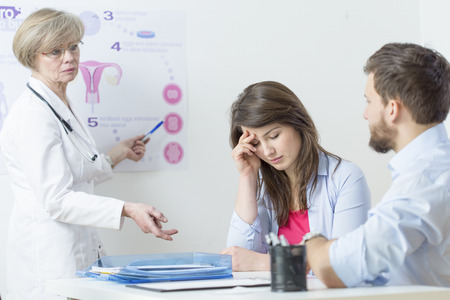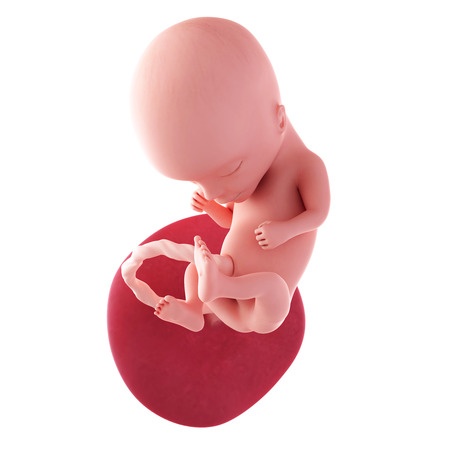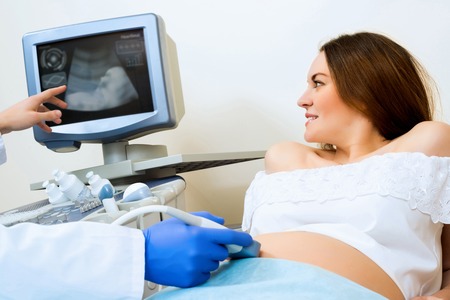Getting pregnant is not as easy as it may seem to be. It involves a lot of complications, some calculation and definitely good health. For a couple who wish to begin their family, “how to get pregnant” is a question on which their happiness depends entirely.
If you are trying to be pregnant just do not leave it on luck, make sure you are healthy and fit to meet with all the needs of a normal fertility. Predict your ovulation period and follow the do’s and don’ts to increase your chances of conceiving a baby. Here are few things a couple, particularly the woman needs to take care of in order to easily conceive a child.
Factors That Enhance Your Pregnancy Chances
- First and foremost, find out if your body is ready for pregnancy or not? Are you healthy enough to carry a baby and shape it into a healthy baby? Visit a doctor and go for a Preconception test.
- For the months of being ready to be a mother, avoid caffeine, drugs, and drinks. Ask your husband to do the same, as it affects the sperms efficiency likewise.
- Time your intercourse the right way, do not skip the days when you are ovulating. A woman only ovulates once during her menstruation cycle and it’s the highest possibility where a couple can be pregnant.
- If you are not sure about the time, one should have sex depending on the ovulation period. It is highly recommended that you visit your doctor and take proper guidance.
- In a wait to have sex in the most fertile period, make sure you do not go dry too long. A man needs to ejaculate semen at least once a day. If he doesn’t and you have sex on the most fertile day, it is not going to be fruitful as his semen would be loaded up with a pool of dead sperms.
- Also, while you are trying to be pregnant make sure you have a normal Body Mass Index, which is the maintained body weight. As the chances of getting pregnant decreases if you have BMI greater than 35 or lesser than 19, anything in between is healthier.

When to Take Expert Help?
Try to conceive a baby naturally in the first six months. 8 out of 10 couples have naturally conceived this way. However, if you are not able to conceive after trying for 6 months, it’s time to meet the fertility specialist. Also, make sure you try being a parent at the right age because the fertility rate decreases as the age increases. If you are anything between 35 and 40 and is becoming difficult to conceive consult a Gynecologist immediately.
Foods That Help You Get Pregnant
- Beans – Garbanzo, Lentils, Edamame, nuts and tofu are some of the good plant based protein foods. Animal protein is also a considerable
- Ice-creams – One/two servings daily of whole milk and whole milk products protects the fertility.
- Leafy Greens – Broccoli, Spinach, Kale, Romaine and Arugula are high in Vitamin B and folate.
- Whole wheat bread, pumpkin seeds – These are other foods that assist you keeping your fertility healthy.
- Olive oil, Wild Salmon fish and unprocessed foods – They are the healthy add-ons.

Health Conditions That Prevent Pregnancy
While you trying every possible way to be pregnant, there are some of the health conditions you are not even sure can become a hindrance in your way to pregnancy. Here are few conditions you need to get checked for if you are not able to conceive:
- Irregular periods: An irregular menstrual cycle and ovulation period is a major reason for a lot of couples who fail to conceive a baby. This causes difficulty in trying to count the right ovulation period which is approx. 12-13 days prior to your period date.
- Abnormal Semen quality: Men and their semen quality can also affect the chances of a woman becoming pregnant. A proper test with expert advice is required here.
- Endometriosis, Polycystic Ovary Syndrome (PCOS), Primary Ovarian Insufficiency, Ovarian cysts and Uterine Fibroids: These are some of the conditions which need to be tested at the right time in order to treat them for a better fertility.
- Age: Your age is also responsible for becoming pregnant. If you are above 40 it is advised to perform every action under your doctor’s guidance.
Treatments That Help You Get Pregnant
Infertility issues in couples is a massively increasing health concern in today’s time. According to a survey performed by the Centers for Disease Control and Prevention, around 7.3 million Americans, that is a huge 12 percent of the population suffers from infertility during their reproductive age. The reasons are many, including their lifestyle, eating habits, dedication towards their career or in-born health conditions. However, with the steadily progressing scientific world, there are now infertility treatments that can help a couple become pregnant. Here are 10 such treatments which are now widely available in all medical centers across the world.
- Artificial Insemination
- Fertility Drugs
- Donor Sperm
- Donor Eggs
- Donor Embryos
- In-Vitro Fertilization (IVF)
- Intracytoplasmic Sperm Injection (ICSI)
- Surrogacy
- Zygote Intrafallopian Transfer (ZIFT)
- Gamete Intrafallopian Transfer (GIFT)
- Reproductive Surgery

Early Pregnancy Symptoms
Once you have conceived, your body will go through varied changes that you may feel instantly. However, at times it is widely possible for few women to experience absolutely no change in their body at all. You may check your pregnancy at home with the help of a pregnancy test, or also undergo a blood test to confirm your pregnancy. Here are the few changes your body will see as the pregnancy progresses. These are the initial pregnancy symptoms or the early signs of pregnancy:
- Your breath gets shortened, or it should be like you need more oxygen as there’s a fetus inside which needs it too.
- Tender, heavy and darker areolas than the regular days is also one of those first signs of pregnancy.
- Fatigue, morning sickness and tiredness increases due to changing hormones.
- Some women face nausea longer till they are 6 weeks pregnant
- You have to run for the toilet frequently as your body produces more fluid which keeps your bladder working the entire day and night.
- Headaches can also be one of those early pregnancy signs, one should try an online pregnancy test to confirm the same.
- Body cramps, backaches, food cravings like never before, are also the symptoms of pregnancy
- Mood swings, Bloating, Constipation, sensitivity to odors and dizziness, appear as signs of pregnancy
- You miss your period date by over 10 days. And this should only make you ask the question, ‘Am i pregnant?’
Once everything is positive and normal, a to-be mother should go for prenatal checkup and also never forget her doctor’s prescribed prenatal medications. Women should use a pregnancy calculator to keep a record of their pregnancy week by week development of the growing fetus to ensure a healthy child. So, stop worrying about your pregnancy, fertility and how to get pregnant concerns. Science has an answer to everything.


